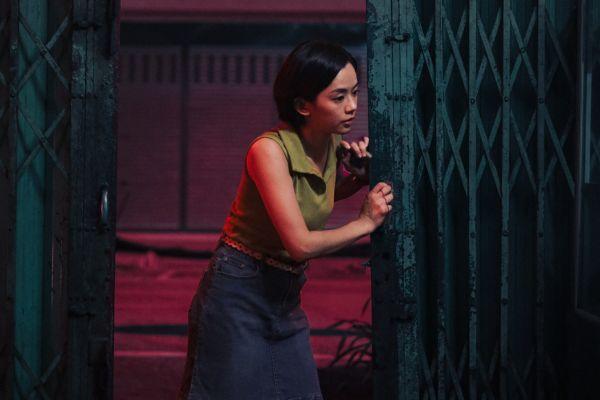‘Hungry Ghost Diner’ is a gorgeous little indie film inspired by a trip that Filmmaker, Writer and Director We Jun Cho embarked upon to visit his ancestral rural town in Malaysia, following the death of his paternal grandmother.
At the time, he was nervously anticipating an uncomfortable reconnection with his father’s family.
"Like a lot of Asian sons, I never really bonded with my father, who was a site contractor and was rarely home, so I grew up mostly with my mother’s care,” We Jun Cho says. “Due to my personal insecurities and feeling of lifelong alienation and also to not speaking any Hakka Chinese or Cantonese, truth be told, I was more than a little hesitant to make the trip back to my father’s hometown for the funeral.”
When the day came, despite his worries, Jun felt a sense of warmth and acceptance at the reunion and was welcomed by his cousins and extended family members who communicated in broken English and shared their funeral rituals and memories with him.
The idea of 'Hungry Ghosts' originates from Indian Buddhist folklore. When Buddhism first spread to China and had to interact with Taoism, Confucianism and Chinese folk religion, it subsequently resulted in syncretism and adoption of this concept by the Chinese.

We Jun Cho
The resulting belief among those who practice Chinese folk religion and Chinese Buddhism is that when humans die, they become ordinary ghosts. According to the tradition of Chinese ancestral veneration, living family members of the deceased have a responsibility to care for their family’s ghosts and pay tribute to them by putting out offerings of food and even money (in the form of joss money or 'hell money', which is burnt).
Ghosts whose families have either forgotten or abandoned them are believed to go hungry (hence the term 'Hungry Ghosts'), and are forced to scrounge for whatever they can get or steal from others, potentially causing mischief especially during Ghost Month, when the Gates Of Hell are open and the spirits freely wander the mortal realm.
"I thought it was ironic that it was a funeral – a commemoration of the dead – which had brought me together with my extended family, not a festive occasion like the Lunar New Year or Mid-Autumn Festival celebrations. This led me to reflect on the similarities with another festival that's celebrated by Chinese diaspora globally – the Hungry Ghost Festival, which is often feared and misunderstood, the origins of which is mostly forgotten,” Jun says.
The principal character of Bonnie is beautifully played in the film by Yoke Chen, who embodies a rare grace and captivating presence on screen: “She really is an incredible talent, such and open-minded and generous collaborator, all-round beautiful human being,” Jun reflects.
Bonnie is forced to take refuge in her family's old coffee shop when stranded during a sudden COVID-19 lockdown. She is shocked to discover that it is haunted by ghosts of her deceased relatives returning for the Hungry Ghost Festival. It’s a small but very effective cast, which is rounded out by top performances from Eric Chen, Sam Chong and Fabian Loo.
The restaurant and the town in this film have a universal quality that feels both familiar and timeless and Jun says he was creating something very specific to his own experiences.
“The places I knew from my childhood, the small towns and villages outside Kuala Lumpur that still have such a warmth and charm about them. I am really nostalgic and reflect a lot about how things were in the past when I was growing up. Urbanisation and modernisation is creeping into the rural countryside, and young people have mostly moved away towards urban centres, drawn by the bright lights of the city. You still see some of these old school kopi tiams in the northern states, but they are gradually disappearing.
“This is my love letter to my childhood. I guess it’s my way of letting go, showing my affection to the simple things that have brought me much joy – feelings of home, time spent with family, belonging.”
‘Hungry Ghost Diner’ makes its Australian premiere at Chinatown Cinema (Melbourne) on 1 September, followed by a special Q&A with We Jun Cho. Book tickets.
‘Hungry Ghost Diner’ is available on streaming from 2 September.
